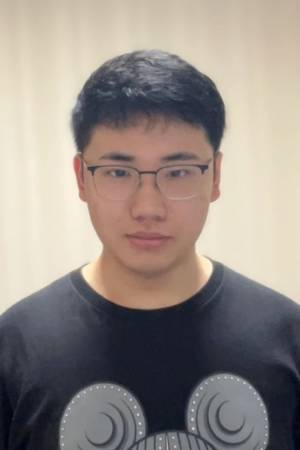DeltaWalker: A Soft, Linearly Actuated Delta Quadruped Robot
Abstract: Quadruped robots offer a versatile solution for navigating complex terrain, making them valuable for applications such as industrial automation or search and rescue. Although quadrupeds are more complex than bipeds, they are easier to balance and control and require fewer joints to actuate compared to hexapods. Traditional quadruped designs, however, often feature complex leg [...]
Propagative Distance Optimization for Constrained Inverse Kinematics
Abstract: This work investigates a constrained inverse kinematic (IK) problem that seeks a feasible configuration of an articulated robot under various constraints such as joint limits and obstacle collision avoidance. Due to the high-dimensionality and complex constraints, this problem is often solved numerically via iterative local optimization. Classic local optimization methods take joint angles as [...]
Advancing Legged Robot Agility: from Video Imitation to GPU Acceleration
Abstract: Achieving human and animal-level agility has been a long-standing goal in robotics research. Recent advancements in numerical optimization and machine learning have pushed legged systems to greater capabilities than ever before, enabling black flips, parkour, and manipulation of heavy objects. Despite these exciting developments, this thesis identifies two key limitations of current legged robot [...]
Model Predictive Control on Resource-Constrained Robots
Abstract: Model predictive control (MPC) is a powerful tool for controlling highly dynamic robotic systems subject to complex constraints. However, it is computationally expensive and often requires a large memory footprint. Larger robotic systems are capable of carrying and powering sophisticated computational hardware onboard. On the other hand, smaller robots typically have faster dynamics that [...]
Enhancing Bipedal Locomotion With Reaction Wheels
Abstract: Legged robot hardware has become more accessible in the last ten years. However, there is still a dearth of low-cost hardware platforms that are open-source and easy to build. With recent developments in accessible manufacturing methods, such as 3D printing, it has become possible to design and manufacture parts without relying on precision machining. [...]
Building Micron: The Next Handheld Manipulator for Microsurgery
Abstract: Robotic assistance is used today in a variety of surgeries as a means of precise, dexterous, and minimally-invasive manipulation. However, practical use in microsurgical environments such as vitreoretinal surgery remains a challenge for the most common mechanically-grounded robotic platforms. Microsurgery requires micron-level accuracy and the ability to manipulate with interaction forces in millinewtons. Vitreoretinal [...]
Towards Estimation, Modeling, and Control of Mixed Material Flows on Variable-Speed Conveyor Belt Systems with Applications in Recycling
Abstract: Whether it is in sorting defects from grain in an agricultural setting, ore from tailings in a mine, or letters in a postal system, the sorting of bulk material has long been a crucial aspect of human industry. Today, in the face of dwindling natural resource deposits and accelerating climate change, a particularly important [...]
Expressive Attentional Communication Learning using Graph Neural Networks
Abstract: Multi-agent reinforcement learning presents unique hurdles such as the non-stationary problem beyond single-agent reinforcement learning that makes learning effective decentralized cooperative policies using an agent's local state extremely challenging. Effective communication to share information and coordinate is vital for agents to work together and solve cooperative tasks, as the ubiquitous evidence of communication in [...]
Estimating Object Importance and Modeling Driver’s Situational Awareness for Intelligent Driving
Abstract: The ability to identify important objects in a complex and dynamic driving environment can help assistive driving systems alert drivers. These assistance systems also require a model of the drivers' situational awareness (SA) (what aspects of the scene they are already aware of) to avoid unnecessary alerts. This thesis builds towards such intelligent driving [...]
Carnegie Mellon University
AI for Human Mobility
Abstract This talk will describe a series of AI and robotics projects aimed at helping people independently move through cities and buildings. Projects include a deployed personalized transit information app, guide robots for people who are blind, and an integrated AI system that assists blind users with guidance and exploration. Specific findings will be presented [...]
Learning for Perception and Strategy: Adaptive Omnidirectional Stereo Vision and Tactical Reinforcement Learning
Abstract: Multi-view stereo omnidirectional distance estimation usually needs to build a cost volume with many hypothetical distance candidates. The cost volume building process is often computationally heavy considering the limited resources a mobile robot has. We propose a new geometry-informed way of distance candidates selection method which enables the use of a very small number [...]










